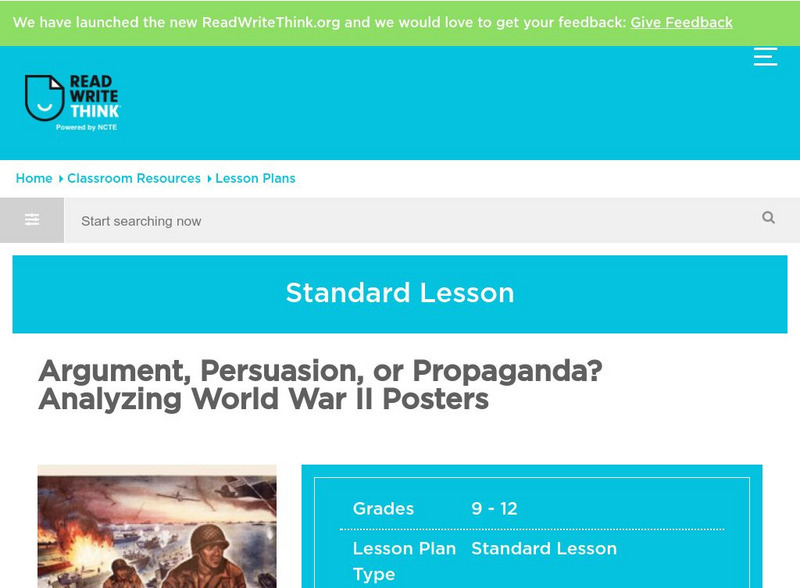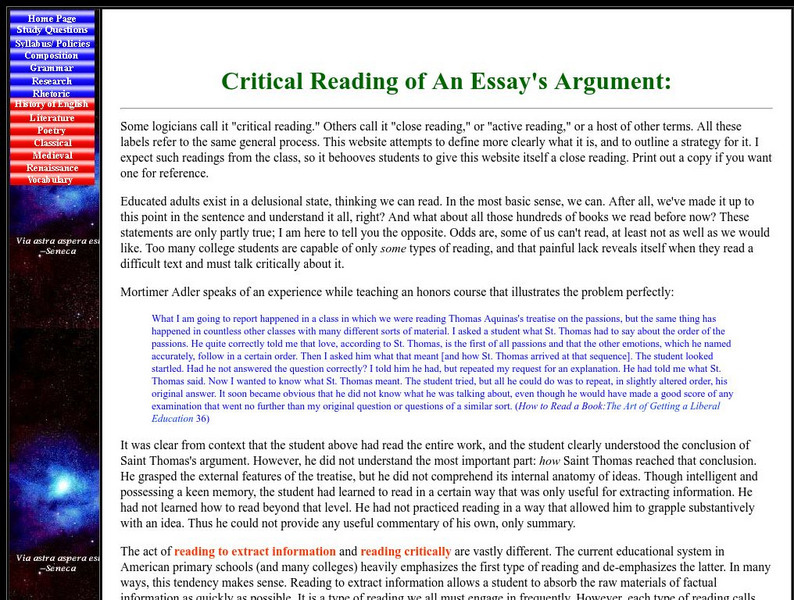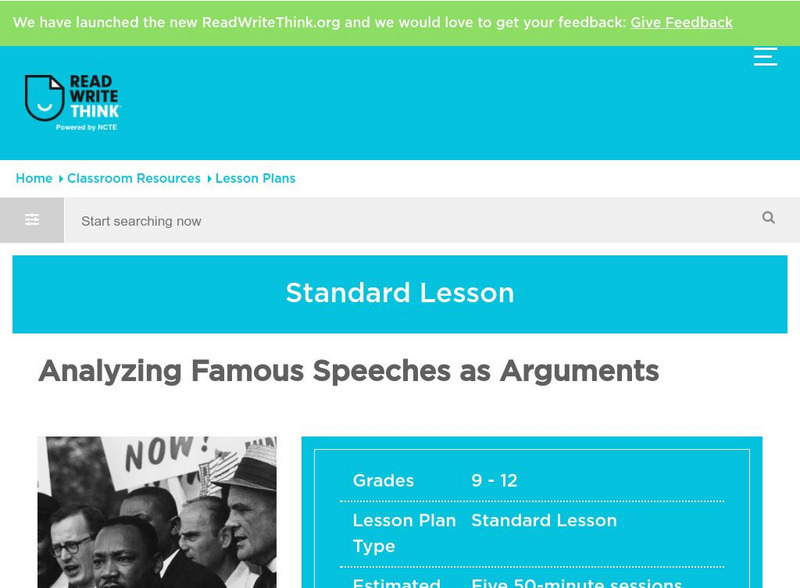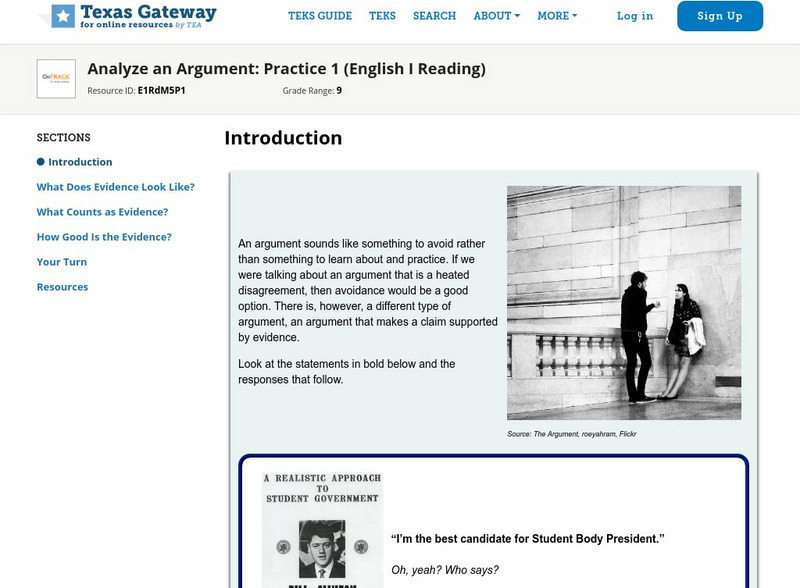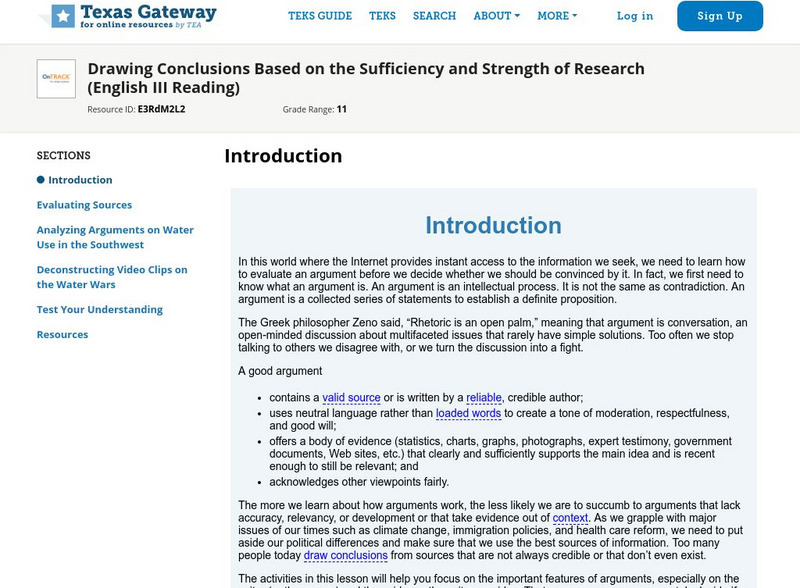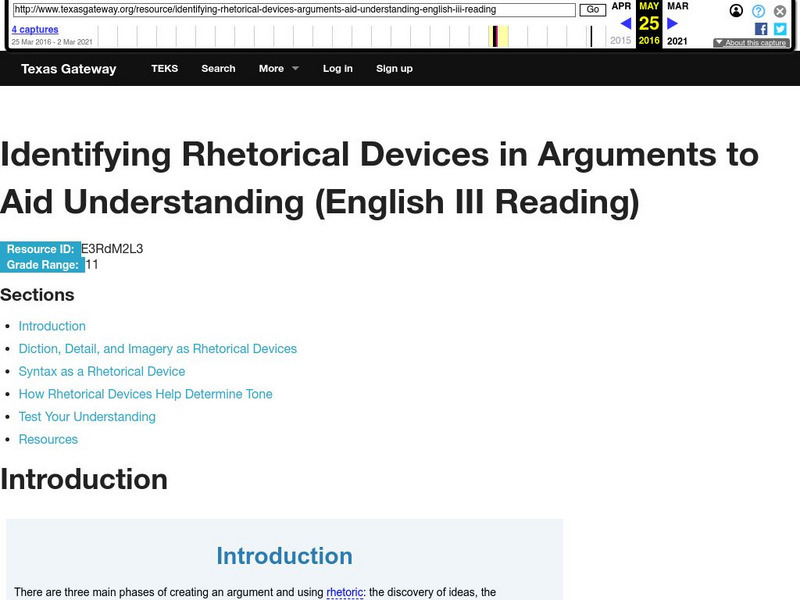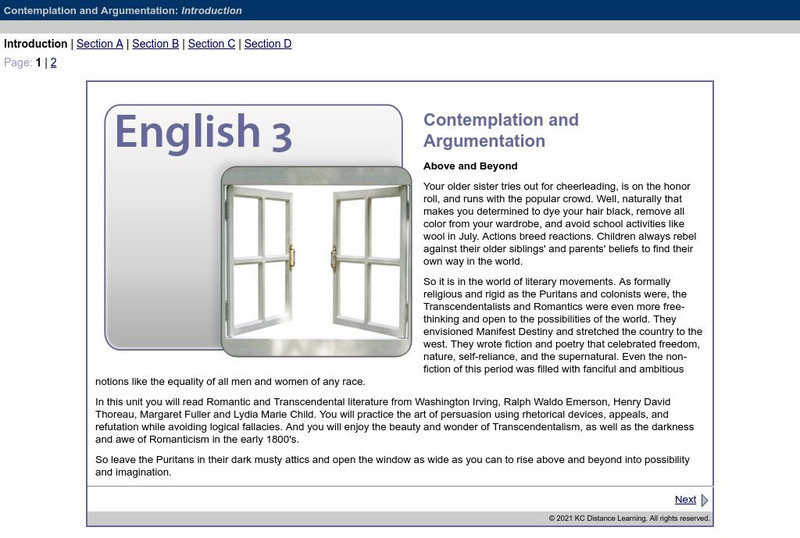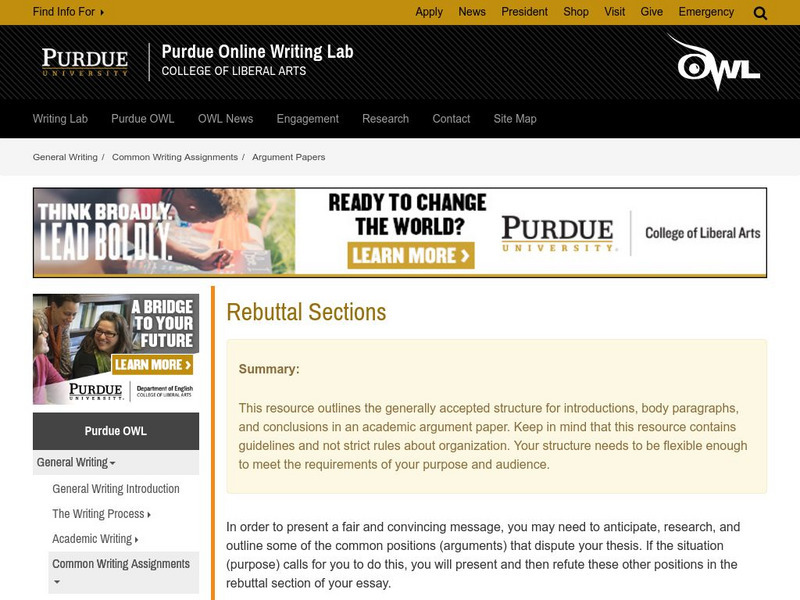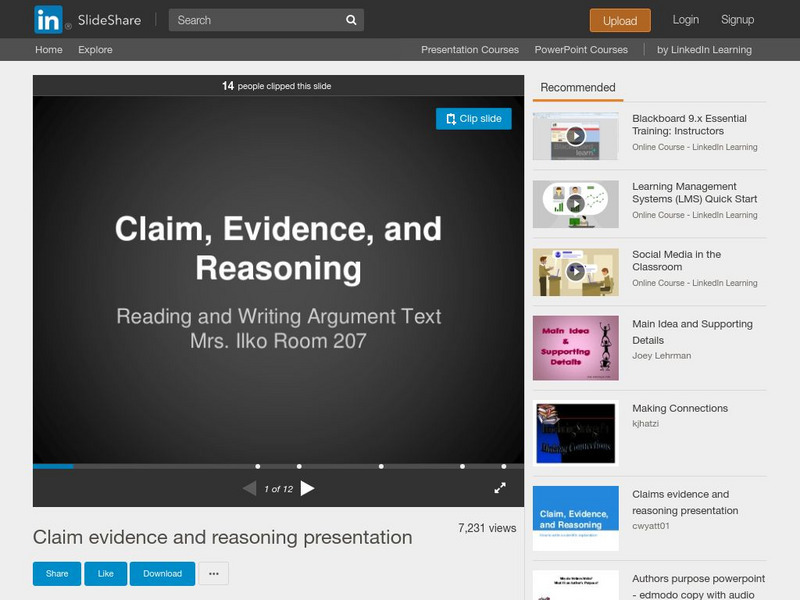Curated OER
American Dream and The Great Gatsby
Is the American Dream alive and well or has it dried up and died? As part of a study of The Great Gatsby, class members search for articles on the state of the American Dream, analyze the arguments presented in those articles, and then...
ProCon.org
Pro Con: Milk: Is Drinking Milk Healthy for Humans?
Website presents research and studies, core questions, pro con arguments, timeline and videos on milk and its health benefits.
ProCon.org
Pro Con: d.a.r.e.
Website with lesson dedicated to exploring the pros and cons of D.A.R.E. (Drug Abuse Resistance Education) program. Contents include importanct facts, pro and con chart, video, background information and links to related resources.
ProCon.org
Pro Con: Obesity: Is Obesity a Disease?
Website presents research, studies, video and commentary on the debate about obesity in America and whether or not it should be considered a disease.
ReadWriteThink
Read Write Think: Argument, Persuasion, or Propaganda? World War Ii Posters
In this lesson, students will analyze World War II posters. Students will first look at the posters as a whole group and will work independently. Students will to determing how the following terms differ: argument, persuasion and...
Other
Carson Newman College: Critical Reading of an Essay's Argument
Extensive examination of what it means to critically read an argument. This process is sometimes called "critical reading," or "close reading," or "active reading." First the differences between reading to extract information and reading...
Polk Brothers Foundation Center for Urban Education at DePaul University
De Paul University: Center for Urban Education: Think Clearly: Analyze Support a Position[pdf]
This Center for Urban Education resource provides a downloadable worksheet. Students will read a nonfiction article and then write about scaffolded prompts that will help them determine the strength of evidence presented in the argument.
Texas Education Agency
Texas Gateway: Writing the Persuasive Essay: Counterarguments Based on Evidence
You will be able to write an essay including counter-arguments that anticipate objections.
ReadWriteThink
Read Write Think: Analyzing Famous Speeches as Arguments
This multi-session activity features the opportunity to analyze a variety of famous speeches. Learners will look carefully at tone, rhetoric, propaganda techniques, and historical context as they write an analysis paper....
Texas Education Agency
Texas Gateway: Analyze an Argument: Practice 1 (English I Reading)
In this lesson, students practice analyzing the evidence that supports or opposes an argument. They are also going to learn to analyze the quality, relevance, and credibility of the evidence so you can decide whether to accept the...
Texas Education Agency
Texas Gateway: Drawing Conclusions on the Sufficiency and Strength of Research
The activities in this lesson will help you focus on the important features of arguments, especially on the writer (or the source) and the evidence the writer provides. That way, you can more accurately decide if an argument is valid and...
Texas Education Agency
Texas Gateway: Identifying Rhetorical Devices in Arguments to Aid Understanding
This lesson focuses on the expression of ideas, the stylistic choices writers make. Because the range of choices is so broad, the activities in the lesson will focus on DDIST: (Diction, Detail, Imagery, Syntax, Tone) to help you remember...
Texas Education Agency
Texas Gateway: Analyze the Relevance, Quality, and Credibility of Evidence
[Accessible by TX Educators. Free Registration/Login Required] In this lesson, students will learn to analyze the quality, relevance, and credibility of evidence used to support an argument.
Department of Defense
Do Dea: Contemplation and Argumentation
In this self-guided unit, you will read Romantic and Transcendental literature and you will practice the art of persuasion using rhetorical devices, appeals, and refutation while avoiding logical fallacies. By the end of the unit, you...
Polk Brothers Foundation Center for Urban Education at DePaul University
De Paul University: Center for Urban Education: Use Evidence to Show How a Writer Supports
This Center for Urban Education resource provides a downloadable graphic organizer for students to use when analyzing the evidence that authors use to support a claim. RI.9-10.5 ideas/claims developed. CCSS.ELA-Literacy.CCRA.R.8
Online Writing Lab at Purdue University
Purdue University Owl: Logic in Argumentative Writing
Provides a detailed explanation of the fundamentals of logic, including brief definitions of key terms and sections on fallacies and improprieties, as well as examples and practice exercises. Click on additional subtopics in the side...
ProCon.org
Pro Con: Tablets vs. Textbooks
Website with lessons dedicated to controversial issues explores whether or not tablets should replace textbooks in schools. Complete set of materials for students to explore both sides of the debate.
Online Writing Lab at Purdue University
Purdue University Owl: Rebuttal Sections
This Purdue University OWL (Online Writing Lab) provides information related to writing an argumentative essay. This guide explains to develop the rebuttals section.
Polk Brothers Foundation Center for Urban Education at DePaul University
De Paul University: Center for Urban Education: John F. Kennedy's Remarks, Berlin [Pdf]
"John F. Kennedy: Remarks in the Rudolph Wilde Platz, Berlin" is a one page persuasive speech delivered by JFK on June 26, 1963. In it he commended West Germany in its efforts to have a democratic government and berated the Communists...
Polk Brothers Foundation Center for Urban Education at DePaul University
De Paul University: Center for Urban Education: Prose Constructed Response Organizer [Pdf]
This resource provides a downloadable graphic organizer designed for preparing a constructed response that must compare two sources that make the same claim: two articles or an article and a video.
Polk Brothers Foundation Center for Urban Education at DePaul University
Depaul University: Center for Urban Education: Improve an Argument [Pdf]
This resource provides a downloadable worksheet. Students will read a nonfiction article and then answer scaffolded questions that will help them determine the strength of evidence presented in the argument. Then students will provide...
iCivics
I Civics: Games: Argument Wars
Games in which players act as lawyers arguing head to head before a judge about real Supreme Court cases.
Polk Brothers Foundation Center for Urban Education at DePaul University
Depaul University: Center for Urban Education: Evaluate Support for a Claim[pdf]
This resource provides a downloadable worksheet to use after reading a nonfiction text. Students will evaluate an author's support for a claim by answering the questions and prompts provided on the worksheet.
Tom Richey
Slide Share: Claim Evidence and Reasoning
A slideshow with twelve slides about reading or writing an argument, analyzing the claim and looking at how it is supported with observation, evidence, and reasoning.




